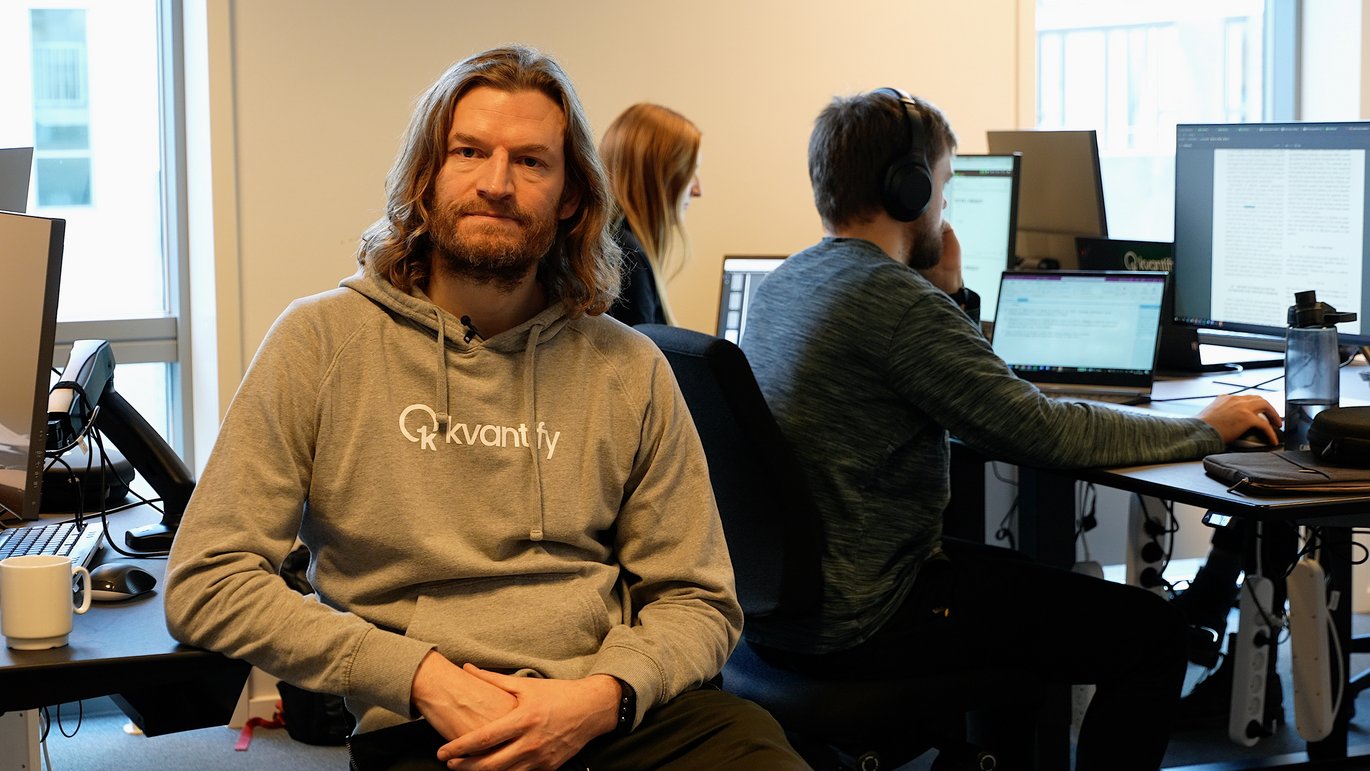Supercomputer feeds data scientist's enterprise
The development of quantum computers of the future requires unusually strong capabilities in physics and computer science. However, the research team behind a new startup still needs alliances with non-academic business people when developing new software.

When it comes to the development and marketing of software for quantum computers, experienced researchers from Aarhus University are venturing into uncharted territory. The research group, which has a background in computer science and physics, has identified a critical lack of software if quantum computers are to provide value to businesses. As a result, the startup company Kvantify was formed, and it has since reached out to industries that can benefit from the innovative technology.
“We researchers can theorise and analyse, but we need to engage with the business world if we are to develop software that allows the quantum computer to make a difference,” explains professor Nikolaj Zinner of the Department of Physics and Astronomy.
The collaboration goes beyond marketing and commerce. Quantum computers operate in a way that necessitates extremely precise software, so developers must also understand the business process.
“Specific problems require completely unique control systems. Otherwise, you risk the quantum computer running slower than regular computers,” Nikolaj Zinner observes.
Who to connect with?
In addition to the necessary academic skills, Kvantify has thus emerged around Hans Henrik Knudsen, who already has a long business career on his CV after earning a PhD in physics in 2008.
The young company has also assembled a diverse team of specialists in chemistry, medicine, computer science, and process optimisation, and it has raised DKK 15 million.
“In the start-up phase, when things moved very quickly, we had some good clarifying talks with the consultants in the business development offer The Kitchen,” recalls Nikolaj Zinner.
“It was critical to form alliances with people other than academics, and we received very useful advice about who we should connect with and what we should keep in mind.”
Balanced collaboration
With his roots in an older, prestigious institute, the professor was well aware that the university can be a bit of an ivory tower at times. As a result, having someone to discuss problems with was useful when determining which partners could benefit the project.
At the same time, it is the academic competencies that propel Kvantify towards its solutions, and the trick has thus been to forge some good forms of collaboration.
Kvantify has, for example, partnered with several industrial PhDs, which is seen as a win-win situation for the companies because it allows their employees to grow their knowledge.
“The reason it has been possible is also due to the incredible support from the university and department heads, who have allowed our researchers to take time off or go on leave,” Nikolaj Zinner emphasises.
Kvantify’s quantum computer software is initially aimed at the finance, logistics, and pharmaceutical industries.
Want more information?
- Reach out to Jeppe Dørup Olesen at jdo@au.dk for more information on turning research into entrepreneurship